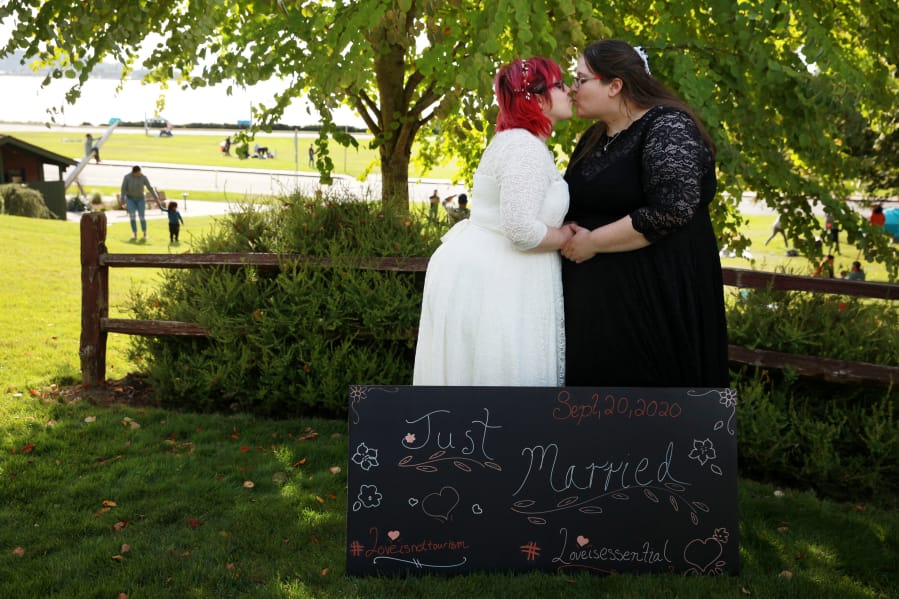SEATTLE — The words on a sign spoke eloquently: “Love is not tourism.”
A wedding took place Sept. 20 at busy Peace Arch Historical State Park in Blaine, uniting a couple who had been separated by a closed border for more than six months. Allyssa Howard drove north from the Everett area, where she has lived for the past four years; Sara Morosan came from her home in Chilliwack, British Columbia. Both wore lace dresses — one black, one white — with black lace-up boots; both of their faces glowed.
Howard and Morosan are just one of many cross-border couples whose plans for a life together have been affected by pandemic regulations — and who came together, appropriately, at the Peace Arch. The park is unique along the U.S.-Canada border, in that it is a place where people from either side of the border can gather together. The border itself officially closed to nonessential travel in March (banning tourism), and the Canadian side of the park closed in June. But the gatherings at the Peace Arch have continued; a peaceful loophole.
And the weddings there have multiplied. “It’s happening every day, literally dozens of couples at the border, people from around the country,” said Len Saunders, an immigration attorney in the border town of Blaine. He noted that he’s doing a “huge business in spousal green cards — never in this capacity before.”
Park ranger Rickey Blank, manager of the Peace Arch Historical State Park, concurred. Pre-COVID, he said in an email, “weddings between folks across the border” might happen once or twice a week; now it’s 20 to 25 weddings weekly. (Blank said that couples wishing to marry at the park should contact park staff in advance — impromptu weddings are discouraged — and expect to follow all current social-distancing guidelines.) While getting married at the park with an officiant and a small handful of people is possible, the parks department is not allowing larger weddings (with tents, tables and such) at any of its state parks. “This is not only a public health concern during a pandemic, but also these activities are harming the park’s landscaping and natural resources,” said Anna Gill, communications director with the Washington State Parks and Recreation Commission.



